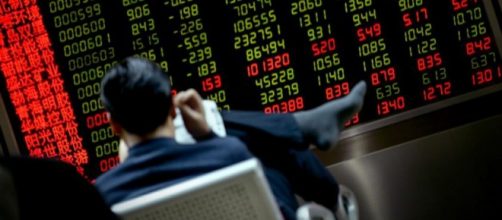"I am quite pessimistic about the equity markets for the next two to three months. I do not see a 2008-style scenario, but I do see a bear market coming," said Andreas Clenow, hedge fund trader and principal at ACIES Asset Management. When God said “let there be light" it appeared to exclude the dark cloud hovering over investors, who are just beginning to feel the brunt of the global stock market falling. Images of investors fleeing stocksaround the world, rushing into U.S. government bonds, gold and the yen, felt all too familiar, as oil prices continued to slide increasing fearsabout its impact on global growth.
No market was absolved from the downward financial spiral, asEurope’s main markets led by theFTSE 100, which sank 3.46%, or 203.2 points, to 5,673.58.Germany’s Daxand theCac 40in Paris ended 2.82% and 3.45% down whilsttrading on Wall Street, theDow Jones,SP 500, andNasdaqindexes were close to 3% down. It is with these statistics that analysts such as Andreas Clenow have interpreted many markets are now in so-called bear market territory – a fall of 20% or more from their most recent peak.
The catalyst presently points towards the pricing of Brent Crude which is down 2.4% at $28.08 a barrel, a significant yet unflattering landmark reaching a 12-year low. Concerns appear to have increased, as it has been identified that the cost of the commodity has been driven down due to US shale oil flooding the market.
Meaning an oversupply has led oil prices to plummet 75% since mid-2014.
With demand stagnating due to a slowdown in economic growth in China and Europe, signs of respite currently look premature, while industry experts such as energy watchdog The International Energy Agency, offer little comfort when predicting that the market could “drown in oversupply”.
The question that may start to circulate is could this all been avoidable? Some observers think that many markets were riding for a fall. Asset prices were pumped up by ultra-low interest rates in the developed world and also by the central banks that have engaged in quantitative easing, buying financial assets with newly created money

